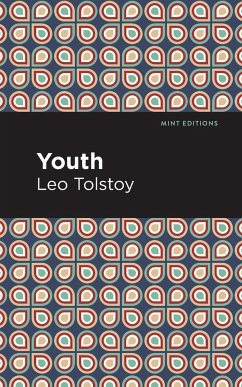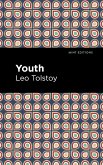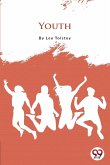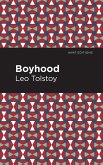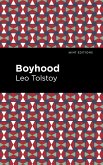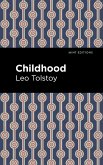Youth (1857) is a novel by Leo Tolstoy. Published at the beginning of his career as a leading Russian author of his generation, Youth is the third in a trilogy of semi-autobiographical novels tracing Nikolenka's journey from innocence to experience. As a record of the past, a nostalgic reminder of a lost world, Youth is one of Tolstoy's most personal works, and yet his prose shows signs of the universal religious and philosophical themes that would inspire such masterpieces as War and Peace (1869) and Anna Karenina (1877). A story of life and death, love and grief, Youth is an invaluable treasure of Russian literature. "Nevertheless there came a moment when those thoughts swept into my head with a sudden freshness and force of moral revelation which left me aghast at the amount of time which I had been wasting, and made me feel as though I must at once-that very second-apply those thoughts to life, with the firm intention of never again changing them. It is from that moment that I date the beginning of my youth." Centered on his friendship with Dmitri and the trials he faces on his way to attending university, the final installment of Tolstoy's trilogy finds Nikolenko on the cusp of adulthood, filled with passions and ideas that form his sense of individuality. As his story unfolds, we see him experience love, grief, and anger for the first time in his life, returning us for a brief moment to our own childhoods, the bittersweet memories of good and bad things that can never return. Praised for its expressionistic style and meditative prose, Youth won Tolstoy the attention of Russia's literary elite, launching his career as one of the nineteenth century's most influential artists. Since our inception in 2020, Mint Editions has kept sustainability and innovation at the forefront of our mission. Each and every Mint Edition title gets a fresh, professionally typeset manuscript and a dazzling new cover, all while maintaining the integrity of the original book. With thousands of titles in our collection, we aim to spotlight diverse public domain works to help them find modern audiences. Mint Editions celebrates a breadth of literary works, curated from both canonical and overlooked classics from writers around the globe.
Hinweis: Dieser Artikel kann nur an eine deutsche Lieferadresse ausgeliefert werden.
Hinweis: Dieser Artikel kann nur an eine deutsche Lieferadresse ausgeliefert werden.

